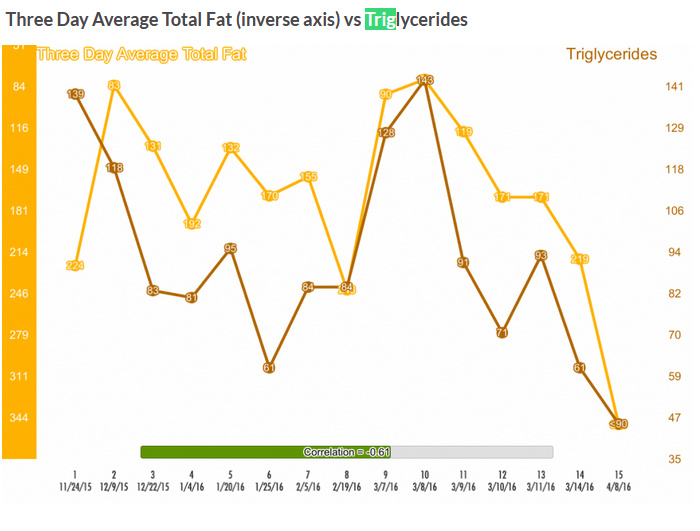I’ve only been getting labs done for 7 years, and at the beginning of that my trigs were sky high. The first reading was over 1000. My TSH was also over 40, so I think that had something to do with why they were so high. The next time they had come down to 500, and over the years they’ve ranged anywhere from the high 200s to the low 400s.
Then I went keto 16 months ago and they started going down. The last lab I had while keto they were normal at 147 for the first time in the 7 years I’d been having them tested. I was thrilled! Then I went carnivore. I had my first lab a month after going carnivore and my trigs were 226. I just had them again, 6 months later, and they’re up to 261.
I expected my total and LDL to go up, at least at first, which they did, but only a small amount. Far less than I expected. But I’m truly puzzled as to why my trigs would go up. Does anyone have any idea?




